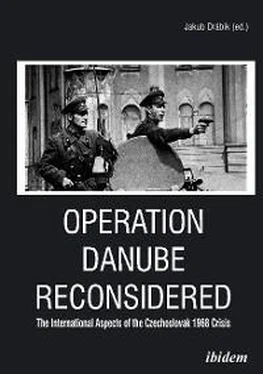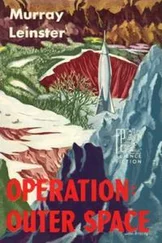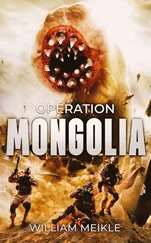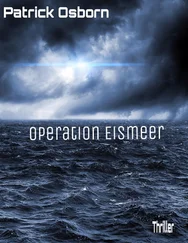The Warsaw pact intervention, however, did not spark an important international crisis. The division of Europe between superpowers was confirmed and a new version of east-west “détente,” based on that understanding, could be launched. Given the exhausting American involvement in the Vietnam War, the Soviets assumed (correctly) that the United States would not intervene and would make do with the condemnation of the invasion. Lyndon B. Johnson cancelled a planned summit meeting with Brezhnev, but this was something that Soviets expected and they concluded that maintaining the control over the Eastern Bloc was more important. Thus, the invasion was completed without any direct intervention from the West or NATO. Similarly, attempts in the United Nations to pass a resolution that would condemn Warsaw pact action were vetoed by the USSR and slowly died away.
This book focuses attention on the international context of the 1968 crisis in Czechoslovakia. Its chief aim has been to bring together experts from within as well without Central Europe and to ignite or—perhaps, better—to re-ignite an international discussion about the Prague spring, its origins, its unfolding, its aftermath and—most importantly—its international context. The debate and historiography regarding the Prague spring is exhaustive, but in a way fragmented, and—besides a few exceptions—with each national historiography giving its soliloquy. Thus, it was high time to start an international dialogue and to investigate and analyse the reactions of the key international players and Warsaw pact member states involved in the invasion, to bring to the debate the newest findings of the respective national historiographies.
Jakub Drábik
02
Reflections on 1968 and its Legacies
Jacques Rupnik
Sciences Po, Paris
“Czechoslovakia in 1968 represented an important moment in human history; it did not represent an important international crisis.” 1The verdict of two eminent British professors of international relations, arrived at instantly after the tanks of August put an end to the Czechoslovak experiment of ‘socialism with human face’, was brutal and painfully accurate. The division of the continent was confirmed and a new version of east-west ‘détente,’ based on that understanding, ready to be launched. The significance of the Prague Spring cannot be measured only by its defeat, however. Its contribution should be understood in the interplay between its Czecho-Slovak and European dimensions. The August ’68 invasion might not have provoked a “major international crisis,” as the two professors stated, but it certainly was the year that shook Europe. Three aspects deserve to be mentioned in this respect. First, the Prague Spring revived the debate about Czechoslovak democratic exceptionalism in the context of (east) European Socialism. Second, it was often interpreted as part of an international, generational revolt against the establishments, east and west. Third, it represented the most far-reaching reform of the system within the Soviet sphere and provided twenty years later a belated (and thus doomed) inspiration for Mikhail Gorbachev’s botched attempt to save it, which indeed paved the way for 1989.
The Prague Spring was not what you read about in school textbooks that start with the election of Alexander Dubček as party leader on January 5, 1968 and conclude with the Soviet-led invasion of August 21. Rather, it should be understood as a process starting in the early 1960s, with converging pressures for economic reforms identified with the name Ota Sik; Slovak resentment of Prague centralism (hence Alexander Dubček and the federalization project); and the gradual emancipation of the cultural sphere from the stranglehold of ideological censorship, which accounts for the golden age of Czech cinema, theater, and literature with a significant and lasting impact throughout Europe. The culmination of the three-pronged process brought about political change, starting with the abolition of censorship and the separation of party and state. In other words, 1968 was not just a parlor game for reform-minded party bureaucrats. It was, in Václav Havel’s words, “above all a civic renewal, a restoration of human dignity, the trust in the capacities and possibilities of citizens to change society.” 2
Post-1968 interpretations of the democratization process revived variations on the theme of Czechoslovak exceptionalism in east central Europe. The first could be summed up as the triumph of Czech and Slovak culture over the Communist structure. The emancipation of the cultural sphere from the constraints of censorship without being subjected to market pressures produced a powerful 60s cultural background to the political and societal changes associated with 1968. A related version of the argument concerns the enduring democratic character of Czechoslovak political culture. Authors like Archie Brown and Gordon Skilling are instructive here. Skilling, in his monumental study of the Prague Spring, has argued that the legacies of pre-war democracy, followed between 1945 and 1948 by a “democratic interlude,” have left behind a political culture (both broadly in society and specifically within the Communist Party itself) that were in conflict with the Stalinist regime, and that eventually came to the surface in the 1960s to contribute to a break from Soviet-type Communism. 3Hence, the problematic title of Skilling’s book, The Interrupted Revolution . In contrast to the Hungarian revolution of 1956, and in order to avoid a similar outcome, the Prague reformers were eager to stress that they meant change within socialism. Yet abolishing censorship and separating party and state fostered a dynamic that challenged the fundamentals of the Communist system.
One of the most interesting debates about the meaning of 1968 was expressed through the opposition of two leading Czech intellectuals, Milan Kundera and Václav Havel—a debate which is worth re-reading half a century later, although not for a post-invasion assessment. 4Inspired by the formidable, peaceful civic resistance of August 1968, Kundera overstated the case when he said that the reformist project could survive the invasion, and this was mercilessly dismissed by Havel as sheer delusion. It is the meaning of the Spring of 1968, however, which is worth revisiting. Following on H. Gordon Schauer’s provocative nineteenth century question about what ultimately justifies the efforts put into producing a culture in the Czech language, Kundera makes a plea for the contribution of small nations to universal values, ideas, culture:
A small nation, if it has any meaning in the world, has to daily, constantly re-create itself. The moment it ceases to create values, it loses the justification for its existence and then perhaps actually ceases to exist, because it is fragile and vulnerable. The creation of values is connected with its very being. 5
For Kundera, the Prague Spring was of significance to Europe as a whole because, beyond eastern Stalinism and western Capitalism, it tried to combine Socialism with democracy. Not a mere remake of the ‘third way’, nor a blueprint for a radiant future, the Czechoslovak heresy was defeated, but its impact on the future of the European Left has been far-reaching and persistent.
Havel’s take, in contrast, was more sober and realistic, far from the ‘provincial messianism’ he attributed to Kundera. Restoring basic freedoms was no doubt a great achievement, but the last time we had them was thirty years ago and indeed this is considered ‘normal’ in most ‘civilized’ countries. Therefore, 1968 was about liberal democratic normality, as opposed to the repressive ‘normalization’ that followed:
… If we are going to imagine that a country has placed itself at the center of world history because it wishes to establish freedom of expression—something taken for granted in most of the civilized world—and to check the tyranny of its secret police, in all seriousness we shall become nothing more than self-complacent hacks, laughable in our provincial messianism! Freedom and the rule of law are the most basic preconditions for a normally and soundly functioning societal organism, and should any state attempt to reestablish them after years of their absence it is doing nothing historically momentous but simply trying to remove its own abnormality. 6
Читать дальше












